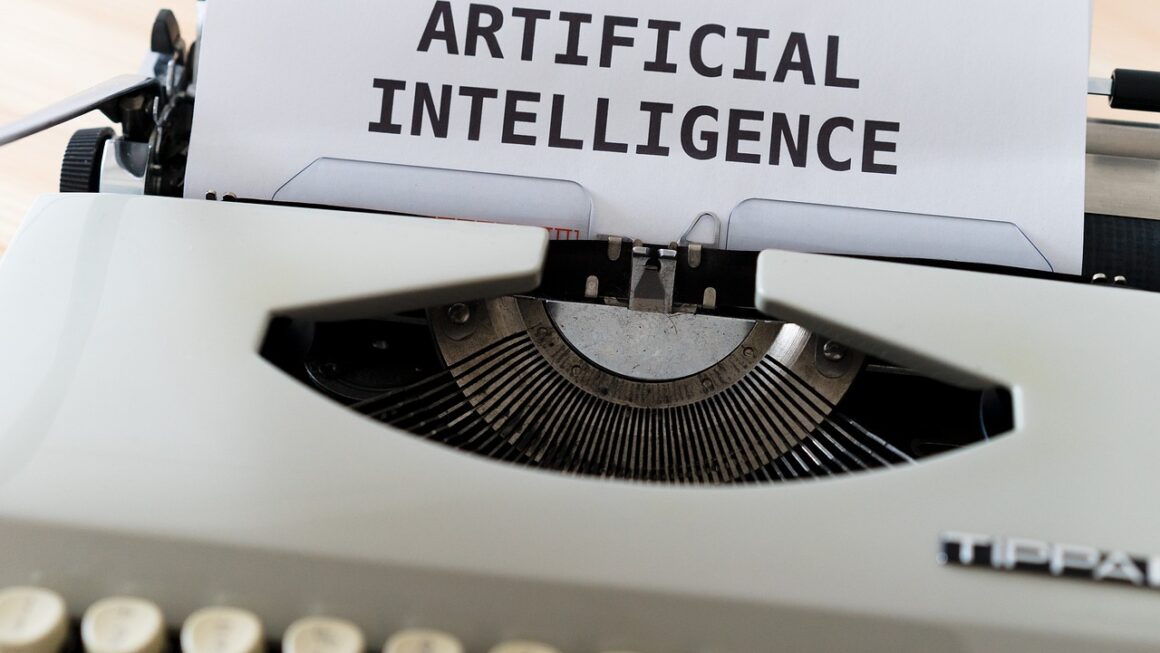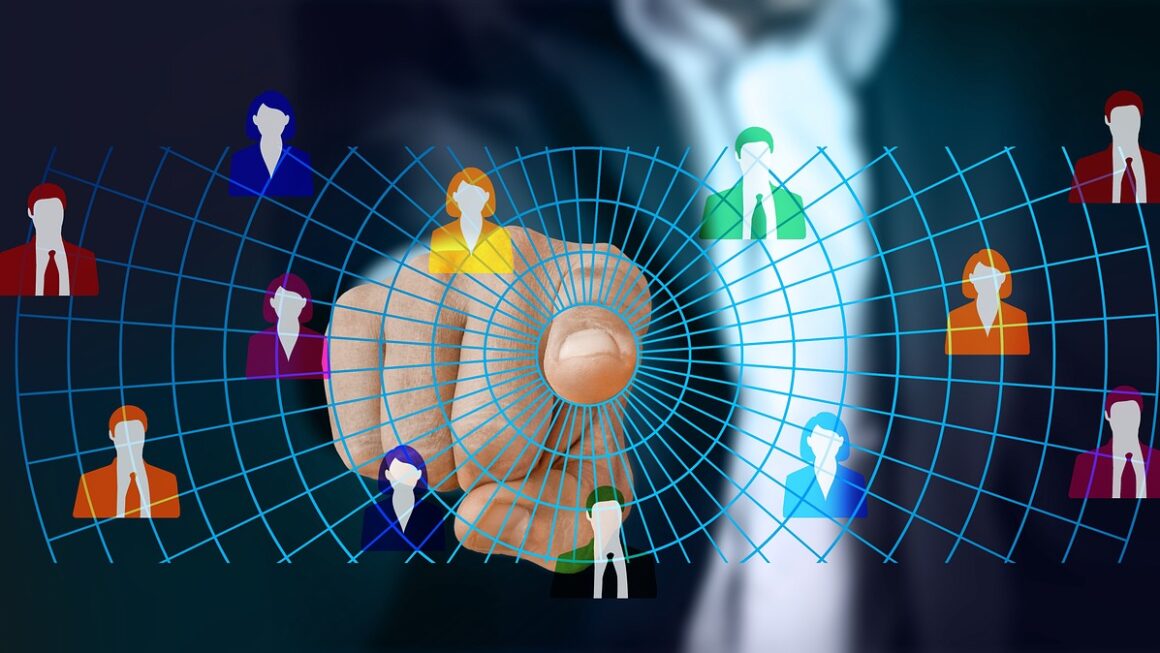Artificial intelligence (AI) is rapidly transforming industries worldwide, and healthcare is no exception. From diagnostics and drug discovery to personalized treatment plans and administrative efficiency, AI is poised to revolutionize the way healthcare is delivered and experienced. This blog post delves into the multifaceted applications of AI in healthcare, exploring its current state, potential benefits, and the challenges that lie ahead. Understanding these developments is crucial for healthcare professionals, patients, and anyone interested in the future of medicine.
AI in Diagnostics and Imaging
Enhancing Accuracy and Speed
AI algorithms, particularly those based on deep learning, are proving invaluable in analyzing medical images with remarkable accuracy. They can detect subtle patterns that might be missed by the human eye, leading to earlier and more accurate diagnoses. This is especially beneficial in areas like radiology, where interpreting images is crucial for identifying conditions such as tumors, fractures, and other abnormalities.
- Example: AI-powered software can analyze X-rays, CT scans, and MRIs to detect lung nodules with higher sensitivity than radiologists. This allows for earlier detection of lung cancer, potentially improving patient outcomes.
- Benefit: Faster diagnosis leads to quicker treatment initiation, improved patient prognosis, and reduced healthcare costs.
Pathology and Cancer Detection
AI is also making significant strides in digital pathology. By analyzing digitized tissue samples, AI algorithms can assist pathologists in identifying cancerous cells, grading tumors, and predicting treatment response. This can improve the accuracy and consistency of diagnoses, ultimately leading to more personalized and effective treatment plans.
- Example: AI systems can analyze biopsy slides to identify specific genetic mutations in cancer cells, helping oncologists choose the most appropriate targeted therapies.
- Benefit: Reduced diagnostic errors, faster turnaround times for pathology reports, and enhanced personalized medicine.
Remote Monitoring and Telehealth
AI-powered diagnostic tools are enabling remote patient monitoring through telehealth platforms. Wearable sensors and other devices can collect real-time physiological data, which is then analyzed by AI algorithms to detect potential health issues and alert healthcare providers.
- Example: An AI-powered smartwatch can continuously monitor a patient’s heart rate and rhythm, detecting arrhythmias and alerting emergency services if necessary.
- Benefit: Improved access to care for patients in remote areas, reduced hospital readmissions, and proactive management of chronic conditions.
AI in Drug Discovery and Development
Accelerating the Research Process
Traditional drug discovery is a lengthy and expensive process, often taking years and costing billions of dollars. AI is accelerating this process by analyzing vast amounts of data to identify potential drug candidates, predict their efficacy and safety, and optimize their development.
- Example: AI algorithms can analyze genomic data, protein structures, and scientific literature to identify promising drug targets for specific diseases. They can also predict how different molecules will interact with these targets, narrowing down the number of compounds that need to be tested in the lab.
- Benefit: Reduced drug development timelines, lower research and development costs, and increased likelihood of discovering novel therapies.
Personalized Medicine
AI is enabling personalized medicine by tailoring treatment plans to individual patients based on their unique genetic makeup, lifestyle, and medical history. By analyzing these factors, AI algorithms can predict how a patient will respond to different drugs and therapies, allowing doctors to choose the most effective treatment for each individual.
- Example: AI can predict a patient’s response to chemotherapy based on their genetic profile, helping oncologists choose the most effective chemotherapy regimen and minimize side effects.
- Benefit: Improved treatment outcomes, reduced adverse drug reactions, and enhanced patient satisfaction.
Clinical Trial Optimization
AI can also optimize clinical trials by identifying suitable candidates, predicting trial outcomes, and analyzing trial data. This can lead to more efficient and cost-effective clinical trials, ultimately accelerating the development of new drugs and therapies.
- Example: AI can identify patients who are most likely to benefit from a particular treatment based on their medical history and genetic profile, improving the likelihood of a successful clinical trial outcome.
- Benefit: Reduced clinical trial costs, faster enrollment, and increased likelihood of regulatory approval.
AI in Personalized Treatment and Patient Care
Developing Tailored Treatment Plans
AI’s capacity to process vast datasets allows for the creation of personalized treatment plans that consider each patient’s unique circumstances. This moves beyond a one-size-fits-all approach to medicine.
- Example: AI can analyze a diabetic patient’s blood glucose levels, diet, and activity patterns to create a personalized insulin dosage plan that minimizes the risk of hypoglycemia and hyperglycemia.
- Benefit: More effective treatment, reduced side effects, and improved patient adherence.
AI-Powered Virtual Assistants
Virtual assistants powered by AI can provide patients with personalized support and guidance, answering their questions, reminding them to take their medications, and connecting them with healthcare providers.
- Example: A virtual assistant can remind a patient to take their medication at the correct time, provide information about their condition, and schedule appointments with their doctor.
- Benefit: Improved patient engagement, reduced burden on healthcare providers, and enhanced access to care.
Predictive Analytics and Proactive Care
AI can analyze patient data to identify individuals at high risk of developing certain conditions or experiencing adverse events. This allows healthcare providers to intervene proactively, preventing these events from occurring in the first place.
- Example: AI can analyze a patient’s medical history and lifestyle to predict their risk of developing heart disease, allowing them to make lifestyle changes and receive preventive treatments to reduce their risk.
- Benefit: Reduced healthcare costs, improved patient outcomes, and enhanced quality of life.
AI in Healthcare Administration and Efficiency
Streamlining Administrative Tasks
AI can automate many of the administrative tasks that consume a significant amount of time and resources in healthcare organizations. This includes tasks such as appointment scheduling, billing, and insurance claims processing.
- Example: AI-powered systems can automatically schedule appointments based on patient preferences and provider availability, reducing the need for manual scheduling and improving patient satisfaction.
- Benefit: Reduced administrative costs, improved efficiency, and enhanced staff productivity.
Fraud Detection and Prevention
AI can detect fraudulent claims and other forms of healthcare fraud, saving healthcare organizations and insurers significant amounts of money.
- Example: AI algorithms can analyze claims data to identify patterns that are indicative of fraud, such as duplicate claims or claims for services that were not actually provided.
- Benefit: Reduced financial losses due to fraud, improved compliance, and enhanced integrity of the healthcare system.
Optimizing Hospital Operations
AI can optimize hospital operations by predicting patient flow, managing bed capacity, and improving resource allocation.
- Example: AI can predict the number of patients who will be admitted to the hospital on a given day, allowing hospital administrators to adjust staffing levels and resource allocation accordingly.
- Benefit: Improved patient flow, reduced wait times, and enhanced efficiency of hospital operations.
Challenges and Considerations
Data Privacy and Security
The use of AI in healthcare raises important concerns about data privacy and security. Protecting patient data from unauthorized access and misuse is crucial.
- Challenge: Ensuring compliance with regulations such as HIPAA and GDPR.
- Solution: Implementing robust data security measures, including encryption, access controls, and data anonymization techniques.
Bias and Fairness
AI algorithms can be biased if they are trained on biased data. This can lead to unfair or discriminatory outcomes.
- Challenge: Ensuring that AI algorithms are fair and unbiased.
- Solution: Carefully curating training data, auditing algorithms for bias, and implementing fairness-aware machine learning techniques.
Ethical Considerations
The use of AI in healthcare raises ethical considerations, such as the potential for job displacement and the need for human oversight.
- Challenge: Addressing the ethical implications of AI in healthcare.
- Solution: Developing ethical guidelines for the use of AI in healthcare, providing training and education to healthcare professionals, and ensuring that AI is used to augment, rather than replace, human expertise.
Conclusion
AI holds immense potential to transform healthcare, improving diagnostics, accelerating drug discovery, personalizing treatment, and enhancing administrative efficiency. While significant challenges remain, including data privacy concerns, bias, and ethical considerations, the benefits of AI in healthcare are undeniable. By addressing these challenges and working collaboratively, healthcare professionals, researchers, and policymakers can harness the power of AI to create a more effective, efficient, and equitable healthcare system for all. The future of healthcare is intertwined with AI, and its responsible implementation promises a healthier future.




